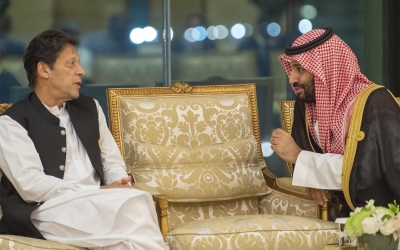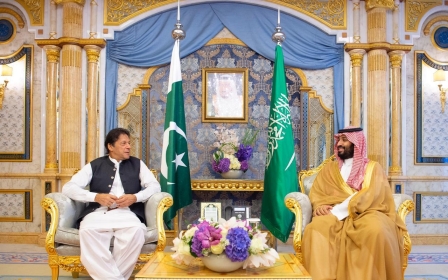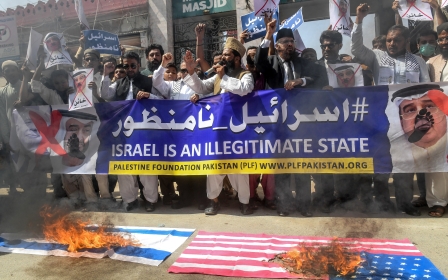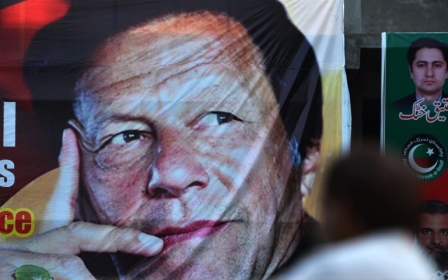Why Pakistan's influence in the Gulf is waning
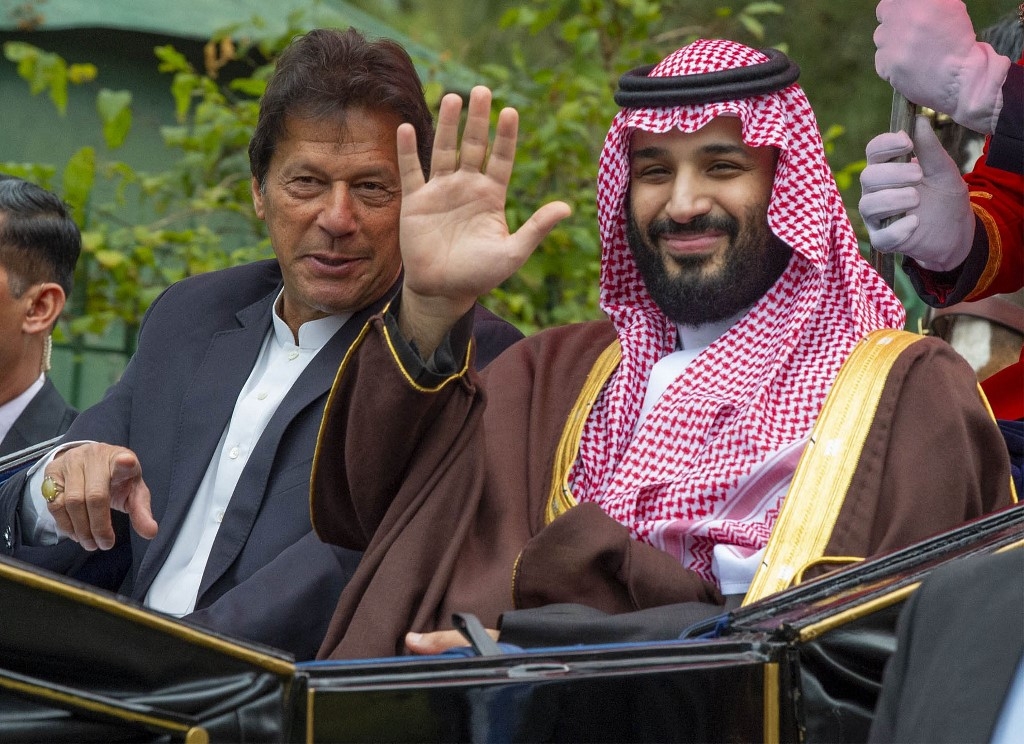
Pakistan’s army chief, General Qamar Javed Bajwa, paid a two-day visit to Qatar in late January. Although it was showcased as a routine visit, the trip comes after a tense year in Pakistan-Gulf relations, suggesting that Islamabad is concerned about the country’s diminishing role in the Gulf’s security architecture.
Pakistan and the Gulf countries have long shared a bond, which was initially premised on religion and strategic ties, and has grown to include economic relations. The military relationship includes training and security cooperation, while economic relations are largely tied to the Pakistani migrant worker community, a significant presence in the region.
For some time, Pakistan’s Gulf policy has largely focused on upholding cultural and religious ties, rather than building sustainable economic linkages. Islamabad has offered to mediate tensions between Riyadh and Tehran, while avoiding becoming enmeshed in various ongoing wars. Though energy resources have been prioritised, overall efforts towards improving economic ties with the Gulf have been lacklustre.
Security patron
Pakistan has long styled itself as a security patron of Gulf countries, and owing to familial ties between Gulf regimes and various Pakistani leaders over the years, Islamabad has generally been perceived as a dependable ally when it comes to defending Gulf interests. But in 2015, when domestic political considerations stopped Pakistan from sending its troops into the Yemen war, relations adopted a downward trend - particularly when it came to the Saudis and Emiratis. This allowed India, Pakistan’s arch-rival, to gain a greater foothold in the Gulf.
New MEE newsletter: Jerusalem Dispatch
Sign up to get the latest insights and analysis on Israel-Palestine, alongside Turkey Unpacked and other MEE newsletters
Simply trying to maintain relevance by acting as an arbitrator between Saudi Arabia and Iran will get Islamabad nowhere
Indeed, the Modi government has sought to strengthen links with the Gulf, which has borne fruit through heavy Saudi investment in infrastructure and oil projects in India, as well as cooperation in counterterrorism efforts. It is increasingly evident that India is replacing Pakistan in arenas where Pakistan previously had a stronghold, such as the export of manpower. The Indian army chief’s “historic” Gulf visit last year also highlighted India’s growing military role.
The changing attitudes of Gulf countries towards Israel is also indirectly affecting Pakistan-Gulf relations. The Pakistani leadership has outrightly refused to recognise Israel, despite pressure by various influential countries. In this respect, the strong relationship between India and Israel - which share ties in sectors such as IT, along with defence and intelligence - is an elixir for Gulf countries officialising ties with Israel.
Another reason for deteriorating Pakistan-Gulf relations is that Islamabad feels the Gulf countries are not vocal enough in condemning Indian atrocities in Kashmir. Last August, Pakistan openly criticised the Saudi-led Organisation of Islamic Cooperation (OIC) on this matter.
But while Pakistan has focused on rhetoric and oratory, India has moved in, making itself more strategically and economically important for these states.
Migrant workers
Amid the changes taking place in the Gulf, particularly the recent Gulf-Israel rapprochement, Pakistan has less to offer. The space for competition in the Gulf is rapidly disappearing, and Pakistani officials need to realise this.
Above all else, Pakistani authorities should focus on making the country’s migrant class more relevant in the Gulf, as these states comprise a very important stream of remittances. The most practical way to do this is to closely assess the national rejuvenation plans of Gulf countries - such as Saudi Vision 2030, Kuwait Vision 2035 and Oman Vision 2040 - and train workers in skills suited for the attendant projects. This would ensure their competitiveness in Gulf labour markets.
Secondly, Pakistani officials must study and identify potential economic niches in the Gulf. One avenue is agro-cooperation: arid conditions, coupled with water scarcity in the Gulf region, make food security a constant concern. Since the agriculture sector is a strong export area for Pakistan, serious investments in agriculture research and improvement of crop yields should be made, in order to tap into the Gulf food industry.
Beyond looking at traditional partners, Pakistan should continue to expand and revisit other bilateral relations in the Gulf, such as with Oman and Kuwait. Positive steps in this regard were reflected in a July 2020 agreement under which Pakistan sent health workers to Kuwait to help fight the Covid-19 pandemic.
Pakistan’s foreign policy, until recently, did not take into account strengthening economic ties with all Gulf countries. But initiatives such as the recent establishment of a Pakistan-Arab federation show that the Pakistani leadership is serious about reversing past mistakes.
Foreign investment
Pakistan’s biggest window of opportunity currently lies in the China Pakistan Economic Corridor (CPEC), the flagship project of China’s massive Belt and Road Initiative. Gulf countries have already expressed their desire to be part of this project, as it ties in with their non-oil sector economic growth plans.
Through incentives such as tax exemptions in CPEC’s special economic zones, Gulf countries can be encouraged to bring foreign direct investment into Pakistan - something it desperately needs amid the present economic downturn.
Various forums, including the OIC meeting of foreign ministers in Islamabad later this year, offer a platform and should be utilised by the Pakistani leadership. Simply trying to maintain relevance by acting as an arbitrator between Saudi Arabia and Iran will get Islamabad nowhere.
It is high time that practical steps are implemented. The door to change is always open for those willing to use it.
The views expressed in this article belong to the author and do not necessarily reflect the editorial policy of Middle East Eye.
Middle East Eye delivers independent and unrivalled coverage and analysis of the Middle East, North Africa and beyond. To learn more about republishing this content and the associated fees, please fill out this form. More about MEE can be found here.




